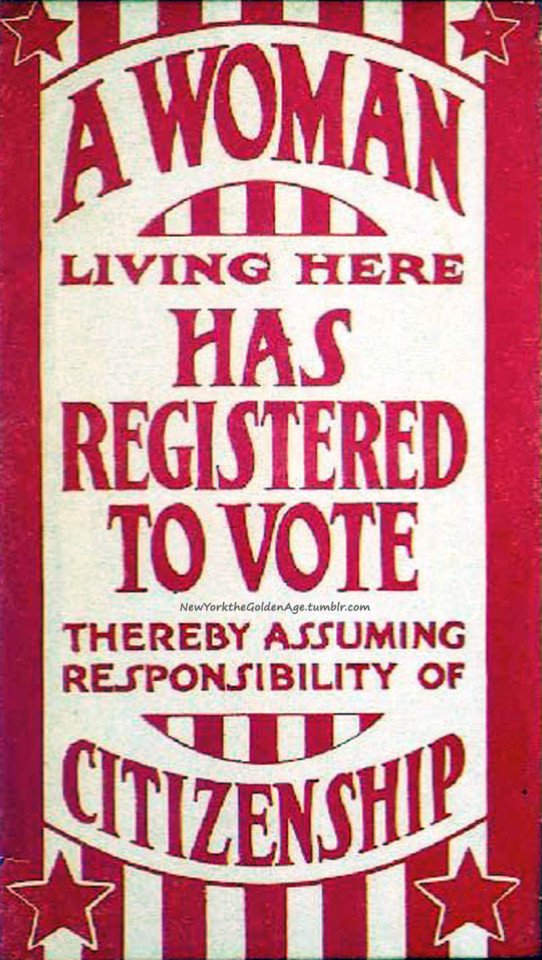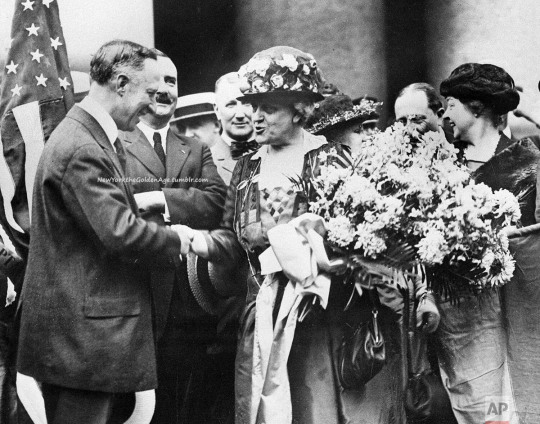#Right to Vote
Explore tagged Tumblr posts
Text

Vote. [League of Women Voters poster by Louis Bonhajo, 1920]
#vote#voting#league of women voters#louis bonhajo#women’s vote#please vote#please encourage others to vote#vintage posters#vintage ads#1920s#women’s suffrage#women’s rights#right to vote#tflo
833 notes
·
View notes
Text
This bill is intended to deny married women and trans people the vote as they are most likely to have name changes as well as poor people who can't afford travel and extra documents.
I beg of you to contact your Senators as four Quisling Democrats voted for this in the House, knowing that Republican claims of wide spread voter fraud are a lie and that all this is going to do is steal the right to vote from American citizens.
If you can't safely contact your Senators in person, here are some other options for contacting your Congress Critters:
Five Calls to your critters: https://5calls.org/
Here is one that will send your reps a fax: https://resist.bot/
#The House of representatives#Donald Trump#SAVE Act#Right to Vote#Voter suppression#Action Item#voter registration
312 notes
·
View notes
Text
Voter suppression for married women, trans people, anyone who has changed their name since birth.
#voting#right to vote#women’s suffrage#politics#us politics#political#donald trump#news#president trump#elon musk#american politics#jd vance#law#republicans#republican#women#womens rights#trans rights#lgbt#lgbtqia#lgbtqiia+#pride#rich mccormick#town hall#votors#vote#voter suppression
193 notes
·
View notes
Text

A window card from 1920, proclaiming that a newly-enfranchised woman had registered to vote.
Photo: NYC Municipal Archives
#vintage New York#1920s#19th Amendment#women's suffrage#female suffrage#poster#right to vote#voter registration#citizenship
982 notes
·
View notes
Text

#black tumblr#black literature#black history#black excellence#black community#civil rights#black history is american history#civil rights movement#black girl magic#blackexcellence365#right to vote#register to vote#voters rights#voter registration#equal rights#black history month#black lives matter
132 notes
·
View notes
Text









Milestone Monday
On this day, November 18, 1872, Susan B. Anthony (1820-1906) and 14 other women were arrested for voting illegally in the United States presidential election of 1872. Though all were arrested, only Anthony was indicted and brought to trial in circuit court. Susan B. Anthony was an American social reformer and advocate for women's rights, significantly contributing to the women's suffrage movement and challenging laws that restricted voting rights to men.
Susan B. Anthony's act of civil disobedience, arrest, and trial galvanized the American women’s suffrage movement. During that period, like all criminal defendants, Anthony was not allowed to testify in her own defense and had to rely on her attorneys to present her case.
The judge in the case ordered the jury to find her guilty without deliberation. She was fined $100, to which she said, “I shall never pay a dollar of your unjust penalty.” She delivered a now-famous speech despite the judge commanding her to cease.
Even though she was found guilty, her courageous stand and ensuing trial brought greater attention to the insufficient rights of women under the U.S. Constitution. Anthony remained dedicated to advocating for women’s suffrage, delivering speeches nationwide, and working diligently until her passing. Fifty years later, the ratification of the 19th Amendment would pass, giving women the right to vote.
Hooray for Women’s Suffrage! Also, let’s hope we don’t see this history repeat itself!!
The photos featured come from the following books in our collection:
History of Woman Suffrage edited by Elizabeth Cady Stanton, Susan B. Anthony, and Matilda Joslyn Gage and published in Rochester, N.Y. by Susan B. Anthony in 1887.
An Account of the Proceedings on the trial of Susan B. Anthony, on the Charge of Illegal Voting at the Presidential Election in Nov. 1872, and on the Trial of Beverly W. Jones, Edwin T. Marsh, and William B. Hall, the Inspectors of Election by Whom Her Vote Was Received published in Rochester, N.Y. by the Daily Democrat and Chronicle Book Print in 1874.
View more Milestone Monday posts.
-Melissa, Special Collections Graduate Intern
#milestone monday#susan b. anthony#right to vote#woman suffrage#women's suffrage#illegal voting#19th amendment#us constitution#presidential election#steel engravings#trial proceedings#elizabeth cady stanton#matilda joslyn gage#beverly w jones#edwin t marsh#william b hall#trials
24 notes
·
View notes
Text
THIS IS EXTREMELY IMPORTANT!
If you even want to have a chance to save your right to vote by mail and vote without having to fork over $130 plus the ride to get to the post office you should follow the instructions stated in this document.
The regulation board will be voting on this TOMORROW, so you only have until midnight TODAY to send your form! It doesn't say what timezone (or if it does, I must have glanced over this in my panic) but I'm guessing that it's Eastern. It's about 8:50 PM there as of me writing this post, so you only have about three hours to submit this form to them!
You'll need to submit your concerns to the regulation board's website. There's an example letter that you can send, but it'd be best to add in any personal details as possible.
The link I gave gives a pretty detailed guide of what you need to do and why this is important. I only gave the footnotes.
10 notes
·
View notes
Text

Hey! If any of these ↓ people are your representatives, give them a call and ask them why they signed on to the SAVE Act

#tiktok#fuck the gop#gop hypocrisy#gop#fuck the republikkkans#republikkkan hypocrisy#voting rights#voter suppression#voter fraud#voter registration#voter rights#right to vote#Georgia#representative mccormick#rich mccormick#republicans
15 notes
·
View notes
Text




9 notes
·
View notes
Text
Welcome to the Thirty-Second Day
Specific action item today.
If the 119th Congress passes H.R.22 ("the SAVE Act") sometime in the next two years, it will be much harder to register to vote if your legal name on your ID does not match the name on your birth certificate. This affects most married women.
If you are a US voter and you have ever legally changed your name, get a passport card. Do it now. Don't wait. It will serve a dual purpose as a photo ID and proof of citizenship, and will therefore meet the voter ID requirements of every state in the country. Protect your right to vote against these kinds of threats.
You can get a passport book, too, if you want. There's a fee for each of them, and a discount if you get them both at once. But it's cheaper to only get the card, and the card is more useful (less clumsy) as voter ID. If you can only get one or the other, get the card.
If your right to vote is secure, or if you are not eligible to vote no matter what, you can still take steps to spread the word and help others with the costs and logistics it takes to obtain the ID they need to vote in 2026 and 2028 and ever after. About 21 million Americans (9%) don't have ready access to the ID they need to vote. People who are poor, rural, overworked, disabled, homebound, or unable to drive are especially vulnerable to these kinds of voter restrictions.
This is an excellent cause to unite communities and establish political organizations. Get out the vote work like this is nonpartisan, anti-fascist, and good, civic responsibility in action. Voting isn't the only way to resist, but it is an important one. Take the opportunity.
2025-02-20
#us politics#resistance#resist#uspol#count the days#day22#save act#voter suppression#right to vote#voting rights#vote#voting#american politics#politics
12 notes
·
View notes
Text
today is election day in canada. reminder to all eligible canadians to go out and
VOTE!
3 notes
·
View notes
Text
They’re Taking Our Right To Vote Away
youtube
3 notes
·
View notes
Text
320 notes
·
View notes
Text
In recent years, some legislative actions proposed or enacted by Republican lawmakers have raised concerns about potential impacts on the voting rights of minorities and women in the United States. These measures, often presented as efforts to enhance electoral integrity, have been criticized for potentially suppressing votes from marginalized communities.
1. Proof of Citizenship Requirements:
• Legislation Example: The SAVE Act, introduced by Republican Congressman Chip Roy, mandates in-person proof of citizenship (such as a passport or birth certificate) for voter registration. Critics argue this could disproportionately affect married women who have changed their last names and may not have updated identification, as well as minorities and transgender individuals facing legal identity discrepancies. 
2. Voter Identification Laws:
• Implementation: Some states have enacted strict voter ID laws requiring specific forms of identification to vote. While intended to prevent voter fraud, studies have shown that such laws can disproportionately affect minority voters, who may be less likely to possess the required IDs.
3. Reduction of Early Voting Opportunities:
• Legislative Actions: Certain states have reduced early voting periods or eliminated same-day voter registration. These changes can disproportionately impact minority and low-income voters who may rely on the flexibility of early voting due to work or personal commitments. 
4. Challenges to the Voting Rights Act (VRA):
• Legal Actions: There have been ongoing efforts to challenge provisions of the VRA, particularly Section 2, which prohibits voting practices that discriminate based on race. Weakening these protections could make it more difficult to contest discriminatory voting laws or district maps. 
5. Purging of Voter Rolls:
• State Actions: Some states have conducted aggressive purges of voter rolls to remove individuals deemed inactive or ineligible. Critics argue that these purges can mistakenly remove eligible voters, disproportionately affecting minorities and women. 
It’s important to note that while these legislative actions are often justified as measures to prevent voter fraud and ensure election integrity, multiple studies have found that instances of voter fraud are exceedingly rare. For example, the Brennan Center found just 30 suspected noncitizen votes among 23.5 million votes in 2016, accounting for 0.0001% of votes cast. 
#voting rights#news#politics#us politics#political#donald trump#president trump#elon musk#american politics#jd vance#law#minorities#women#womens rights#right to vote#vote#voting
29 notes
·
View notes
Text

Former NY Governor Alfred E. Smith welcomes Carrie Chapman Catt, women's suffrage leader, on her triumphal return from Tennessee, August 27, 1920. Tennessee was the last state to ratify the 19th Amendment, giving women the right to vote. Miss Catt carries a bouquet of blue and yellow flowers, colors of the National American Woman's Suffrage Association.
Photo: Associated Press
#vintage New York#1920s#Carrie Chapman Catt#women's suffrage#19th Amendment#suffrage#suffragist#August 27#27 August#Al Smith#27 Aug.#Aug. 27#triumph#Constitutional amendment#right to vote
125 notes
·
View notes
